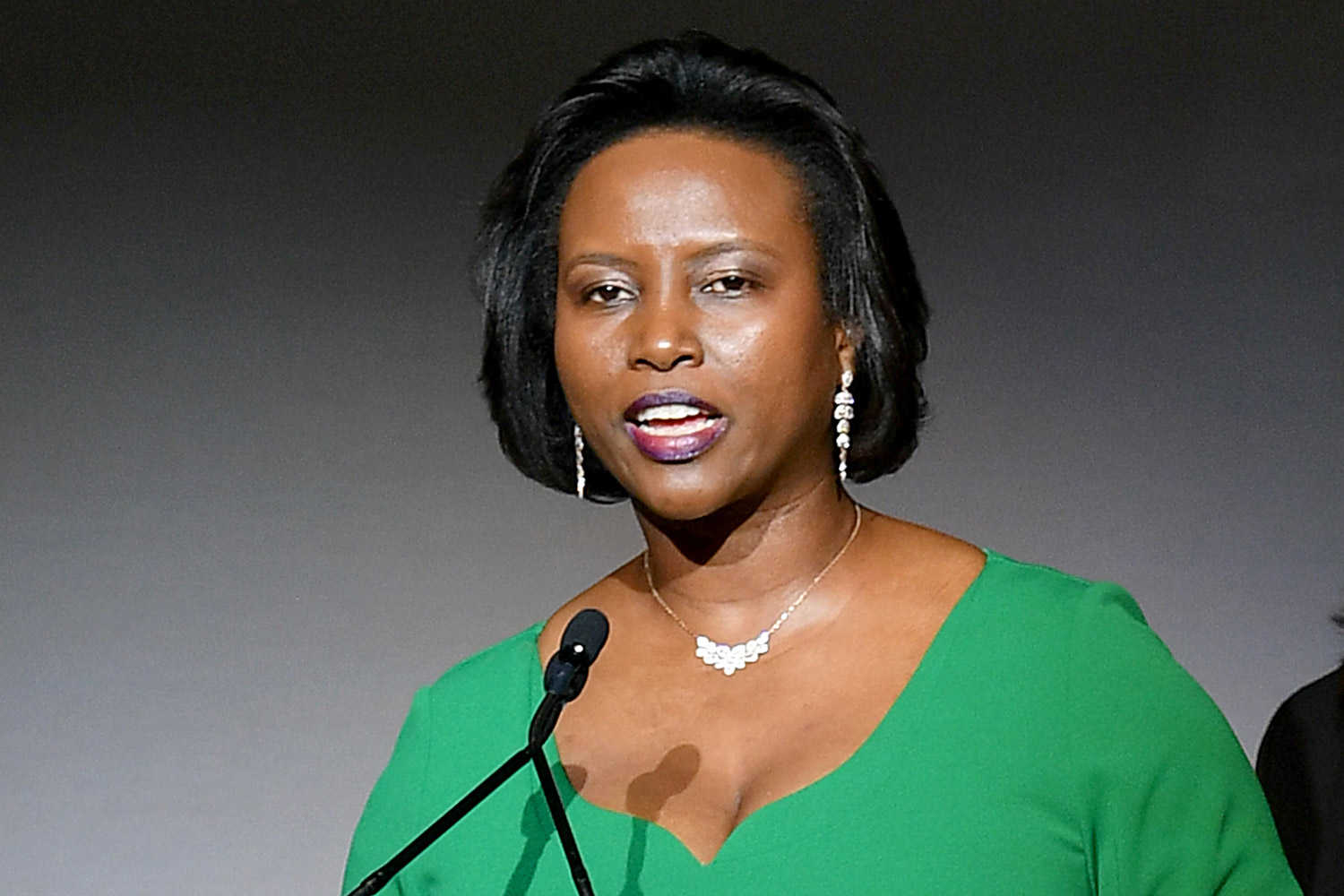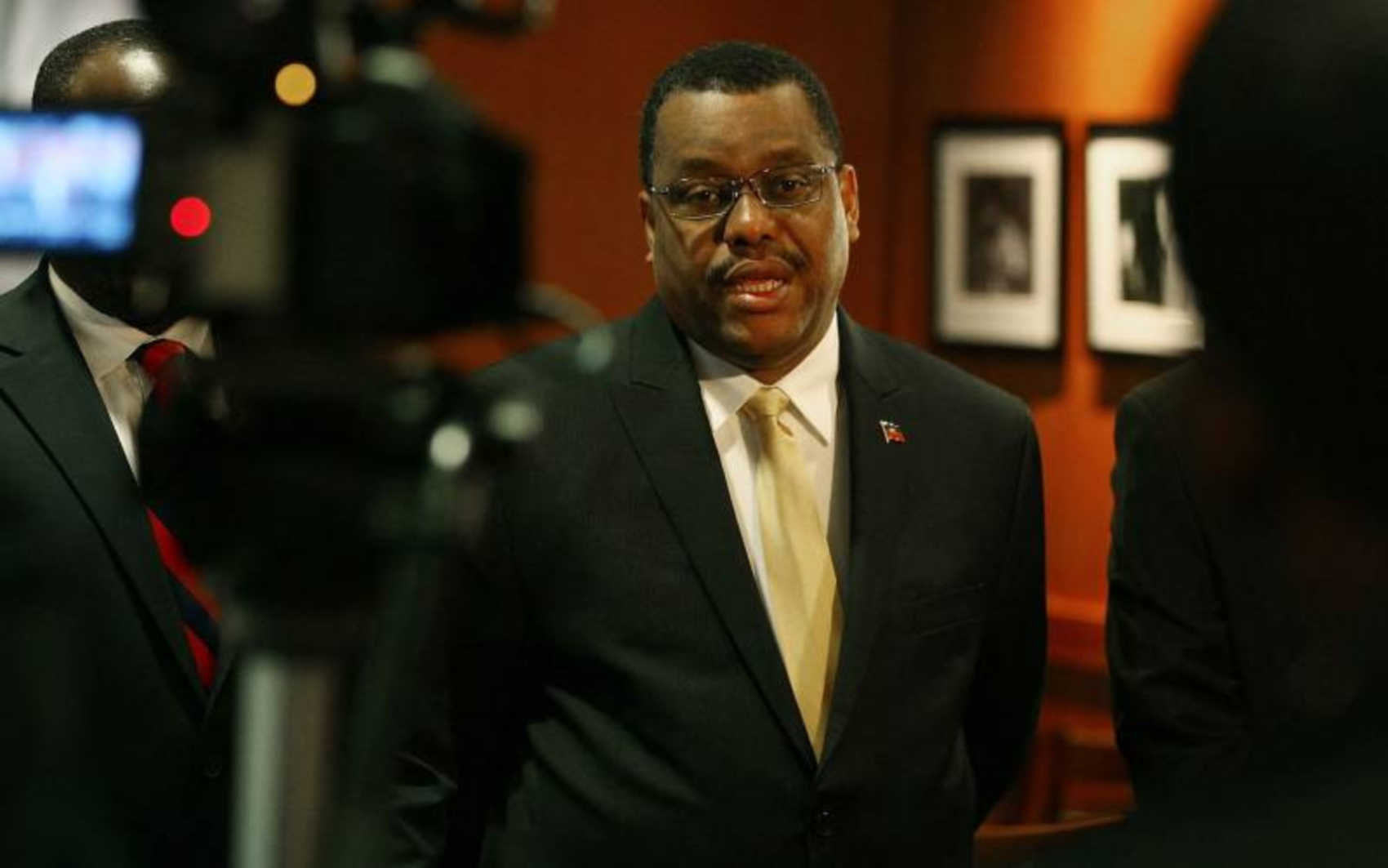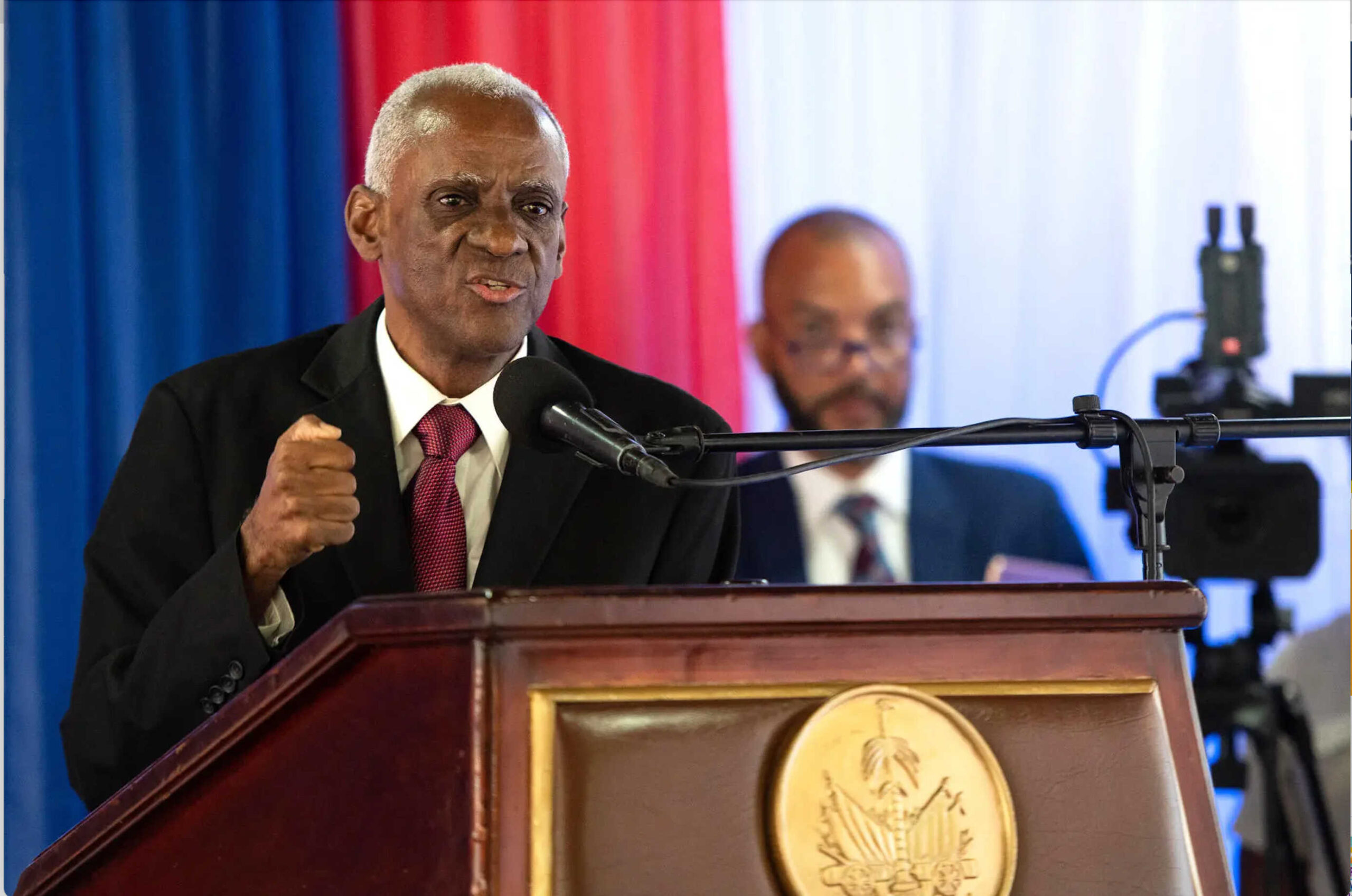Caribbean
Charges Filed in Assassination of Haiti’s Former President, Including Widow and High Officials

The investigation into the tragic assassination of Haiti’s President Jovenel Moise in 2021 has led to the indictment of nearly 50 individuals, encompassing a wide range of figures from former First Lady Martine Moise to high-ranking officials such as former Prime Minister Claude Joseph. This development follows the acceptance of a criminal complaint by Judge Walther Wesser Voltaire, spearheaded by public prosecutor Edler Guillaume. The allegations suggest Martine Moise played a role in the conspiracy that resulted in her husband’s death and her own serious injuries, despite not being directly involved in orchestrating the fatal attack on July 7.
Testimonies have hinted at Martine Moise’s political aspirations, including her desire to follow in her husband’s presidential footsteps. The indictment also names Léon Charles, the former police chief, and Dimitri Hérard, the ex-commander of the Security Unit General of the National Palace. Additionally, Félix Badio, known for his close ties to Prime Minister Ariel Henry, faces charges.
The probe into President Moise’s murder has faced significant scrutiny, criticized for being swayed by political motives. Critics argue that Prime Minister Ariel Henry, who communicated with Badio around the time of the assassination, is leveraging the justice system against political adversaries. With Haiti’s legislative branch inoperative, Henry essentially oversees the government, amid escalating violence and the increasing dominance of armed gangs, further destabilizing the nation.
The path to trial for those indicted by Judge Voltaire remains uncertain in Haiti. However, in the United States, legal proceedings have seen six out of eleven individuals plead guilty to planning the president’s murder, involving the recruitment of Colombian mercenaries for the task. The international dimension of this case underscores the complex web of intrigue and the challenges facing Haiti’s pursuit of justice and governance stability.
Caribbean
Haiti Appoints Garry Conille as Interim Prime Minister Amid Escalating Crisis

Haiti’s Transitional Council has appointed development specialist Garry Conille as the new interim prime minister, following the controversial selection and subsequent removal of Fritz Bélizaire. The decision comes amid increasing political turmoil and widespread violence in the nation.
The initial appointment of Bélizaire was met with significant backlash, with critics accusing the council of disregarding its own selection procedures. In response to these concerns, the council restarted the selection process, ultimately choosing Conille to assume the role.
Garry Conille, previously the regional director for UNICEF in Latin America and the Caribbean, brings experience to the prime ministership, having briefly served in the position from October 2011 to May 2012 under then-President Michel Martelly. His prior tenure ended due to an investigation into government officials holding dual nationality, which is prohibited by Haiti’s constitution.
Conille steps into his role at a critical juncture, as violence from armed groups surges and state forces struggle to maintain order. One of his immediate challenges will be the delayed deployment of a Kenya-led security force intended to bolster the Haitian National Police. Originally scheduled for this week, the deployment has been postponed by at least three weeks due to incomplete preparations, including the construction of necessary bases and provision of essential equipment for the 200 personnel.
Beyond addressing security concerns, Conille faces the daunting task of reviving Haiti’s economy, which is suffering from severe inflation and the disruption of internal trade routes controlled by armed groups.
The Montana Accord, a civil society organization with representation on the transitional council, has criticized the council for its lack of transparency and slow progress in addressing the country’s deteriorating situation. They accuse the leadership group of failing to take meaningful steps towards stabilization, while the population continues to suffer and gangs expand their control.
UNICEF confirmed that Conille would be stepping down from his role as regional director, but he has yet to make any public statements regarding his new appointment.
Caribbean
Fritz Bélizaire Named Interim Prime Minister of Haiti by Transitional Council

Fritz Bélizaire has been designated as Haiti’s new interim Prime Minister by the nation’s transitional council, a pivotal move aimed at steering the country toward fresh elections and restoring democratic governance. The announcement came on Tuesday, positioning Mr. Bélizaire as the successor to Michel Patrick Boisvert, who temporarily filled the role during former Prime Minister Ariel Henry’s international engagements.
Complications arose when Mr. Henry found himself unable to return to Haiti, leading to his resignation and the installation of Mr. Boisvert as the acting head of government. This situation prompted the formation of a transitional council tasked with charting a course forward for the nation.
The decision to appoint Mr. Bélizaire was not unanimous among the council members, with four endorsing him and three expressing reservations due to their unfamiliarity with his previous roles. Mr. Bélizaire served as the Minister of Sports under President René Préval from 2006 to 2011, a tenure that, according to Robert Fatton, a Haitian politics analyst at the University of Virginia, left him relatively unknown in political circles. Dr. Fatton suggested that Mr. Bélizaire’s low profile might actually facilitate broader acceptance as Prime Minister, offering a potential advantage in his new role.
Edgard Leblanc Fils, the president of the transitional council, affirmed the selection, emphasizing that Mr. Bélizaire represents a unifying figure capable of transcending political divides and fostering consensus. “This is a very good choice for Prime Minister,” Mr. Fils remarked. He highlighted the council’s commitment to overcoming internal conflicts and advancing toward stability and electoral processes.
The transitional council aims to stabilize the nation sufficiently to conduct elections by February 2026, at which point their mandate concludes.
Caribbean
Multiple Passengers Vanish During Cruise Ship Visits to BVI, Sparking Immigration Fears

The British Virgin Islands government is actively seeking information on the whereabouts of a Colombian woman who vanished after disembarking from a cruise ship, escalating concerns over potential illegal immigration. Monica Marcela Pineda, a passenger on the Norwegian Sky, failed to reboard the ship following its stop in the territory last Sunday, according to a government bulletin. Authorities confirmed that Pineda neither left the territory by other legal routes nor returned to the departing cruise ship.
This incident is not isolated. Recent weeks have seen similar disappearances involving passengers from the same vessel. On April 19, another port call by the Norwegian Sky saw two more passengers, Pascal Bosman from the Netherlands and Martire Cabrera, a Dominican Republic national with a St. Kitts & Nevis passport, also fail to return to the ship in Tortola without any record of them leaving the BVI by alternative means.
Further, on March 10, three Colombians—Jean Carlo Ospina Cano, Pamela Mesa Escobar, and Yesica Yogana Marin Ramirez—similarly disappeared after the Norwegian Sky docked in March. None of these individuals have been seen since disembarking.
The recurring disappearances of these five individuals during various visits by the Norwegian Sky in recent months have heightened concerns about illegal immigration in the British Virgin Islands. Authorities are urging the public to provide any information that could help address these incidents and ensure the integrity of the territory’s borders.
-

 Education1 year ago
Education1 year agoEducation Board Seeks Input on Schools Through Comprehensive Survey
-

 Education2 years ago
Education2 years agoCTE Board Enthusiastic About New Curriculum Standards, Yet Anxious Over Apprenticeship Support
-

 Crime2 years ago
Crime2 years agoRegistered Sex Offender Detained for Illegal Firearm Possession During Annual Surveillance Drive
-

 Videos3 years ago
Videos3 years ago2022 Gubernatorial Election: Voters Speak Out
-

 Development1 year ago
Development1 year agoCosts Surge as Donoe Estates Housing Project Resumes with New Contractor
-

 Videos3 years ago
Videos3 years agoGubernatorial Teams Celebrate St. Croix’s Bull & Bread Day
-

 Videos3 years ago
Videos3 years agoWakanda’s Female Might: A Dive into ‘Black Panther: Wakanda Forever’
-

 Crime2 years ago
Crime2 years agoSt. John’s Westin Resort Scene of Armed Robbery, Prompting Heightened Police Vigilance




